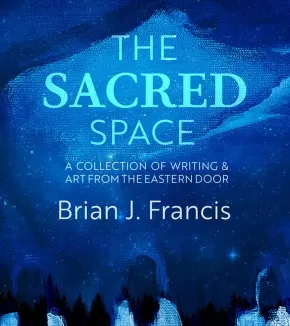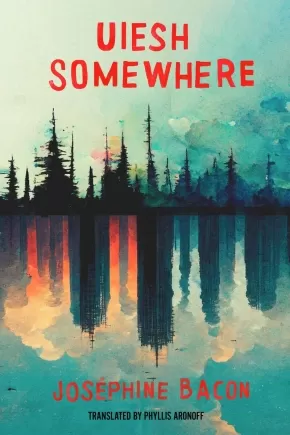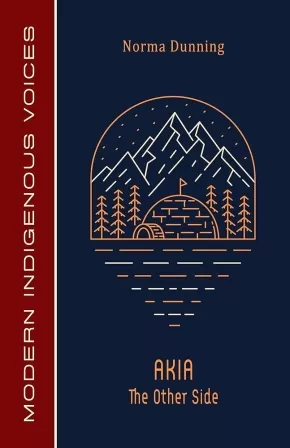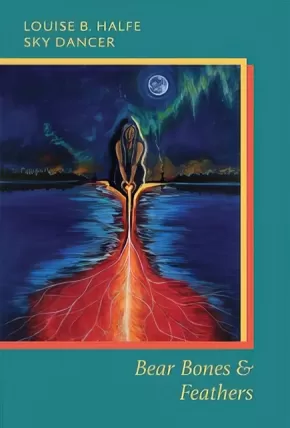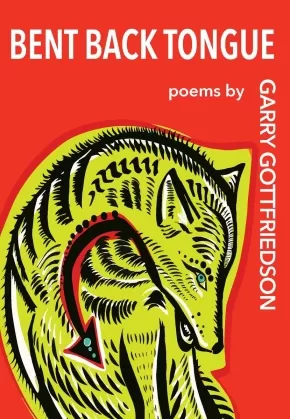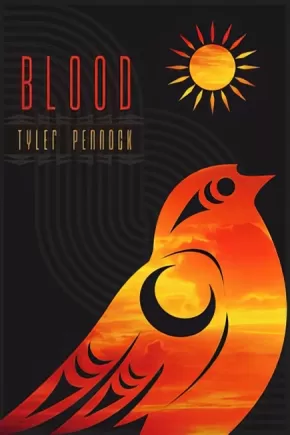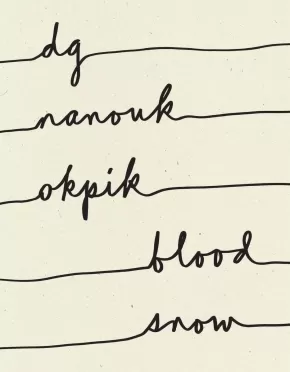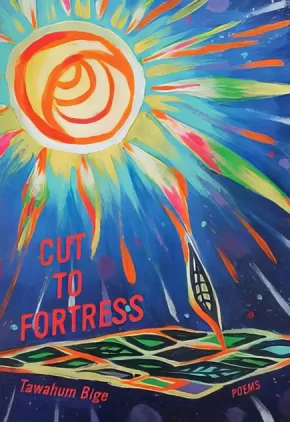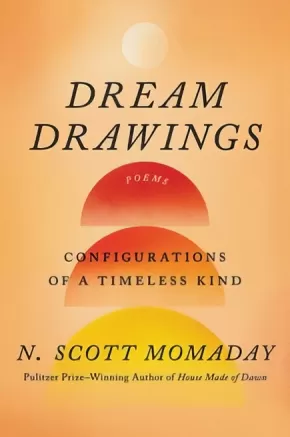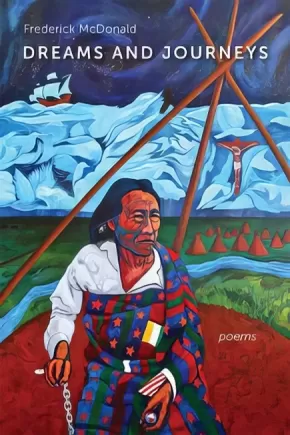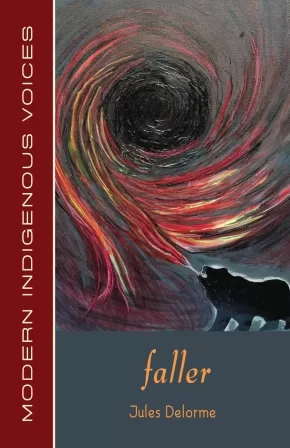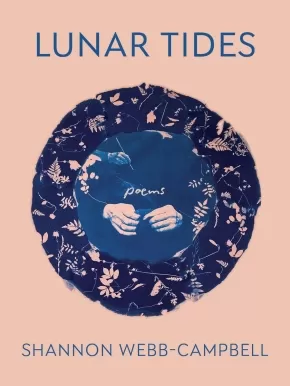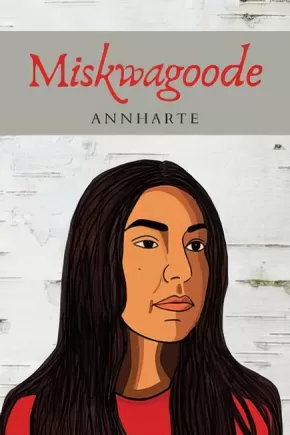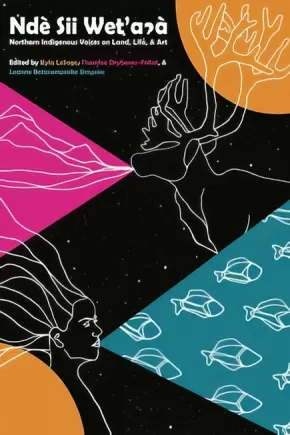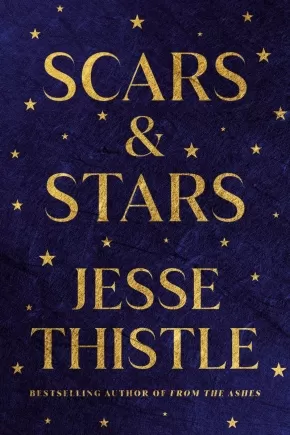
Poetry
61
-
75
of
187 Results;
Sort By
Go To
of 13
The Sacred Space: A Collection of Writing & Art from the Eastern Door
$25.95
Format:
Hardcover
Text Content Territories:
Indigenous Canadian; First Nations; Mi'kmaq; Elsipogtog First Nation;
Reading Level: N/A
ISBN / Barcode: 9781773661230
Synopsis:
Synopsis:
In this intimate collection of writing and art, Brian J. Francis invites us to explore the sacred space within. Through vision, prayer, and dream work, Francis channels messages from the ancestors to help us contemplate themes of nature, mortality, truth, and reconciliation. Eclipsing space and time, Francis words and art resonate with deep texture, hope, colour, and mastery. The result is a shimmering testament to his Mi'kmaq ancestors, and a pledge to the next generation. Guiding us beyond spirit and nation boundaries, this eloquent read is ideal for anyone seeking sanctuary, sacred space, and a comfortable seat at their own altar.
Additional Information
88 pages | 8.00" x 8.00" | Hardcover
Uiesh / Somewhere
$19.95
Format:
Paperback
Reading Level: N/A
ISBN / Barcode: 9781772015140
Synopsis:
Synopsis:
Vital bilingual poetry by Innu Elder Joséphine Bacon
Uiesh / Somewhere consists of short poems that speak directly to the reader, without artifice or pretension. They arise from Joséphine Bacon’s experience as an Innu woman, whose life has taken her from the nomadic ways of her Ancestors in the northern wilderness of Nitassinan, or Innu Territory, to the clamour and bustle of the city. Wherever she is, the poet and Elder is attentive to the smallest details of her environment … from the moon and the stars, the aurorae borealis, the falling snow, the changing seasons, to the sirens of fire engines and ambulances and the noise of a busy bar night. From her quiet centre, she listens to the voices of the Old Ones, whose stories are alive within her, and looks back at the beauty and the pain of her long life.
Additional Information
80 pages | 6.00" x 9.00" | Paperback
Akia: The Other Side
$18.95
Format:
Paperback
Text Content Territories:
Indigenous Canadian; Inuit;
Grade Levels: 12; University/College;
ISBN / Barcode: 9781772311716
Synopsis:
Synopsis:
In this poetry collection, the author honours Inuit who lay in the past, and Inuit who are with us now and most importantly the Inuit who are waiting to come to us. The author believes it is not okay that Inuit children and adults died and were buried in unmarked graves, their bodies never returned to their loved ones. It is not okay that their relatives were never told of their deaths or where they were buried because keeping track of dead Inuit bodies was simply not very important to Canadian authorities. The author wants to imagine a world free of colonialism, a world without interference in Inuit lives.
Educator & Series Information
This book is part of the Modern Indigenous Voices series.
Additional Information
72 pages | 8.50" x 5.50" | Paperback
Bear Bones and Feathers
$20.00
Format:
Paperback
Text Content Territories:
Indigenous Canadian; First Nations; Cree (Nehiyawak); Plains Cree; Saddle Lake Cree Nation ;
Reading Level: N/A
ISBN / Barcode: 9781771315784
Synopsis:
Synopsis:
In this new edition of her powerful debut, Plains Cree writer and National Poet Laureate Louise B. Halfe - Sky Dancer reckons with personal history within cultural genocide.
Employing Indigenous spirituality, black comedy, and the memories of her own childhood as healing arts, celebrated poet Louise B. Halfe - Sky Dancer finds an irrepressible source of strength and dignity in her people. Bear Bones and Feathers offers moving portraits of Halfe's grandmother (a medicine woman whose life straddled old and new worlds), her parents (both trapped in a cycle of jealousy and abuse), and the people whose pain she witnessed on the reserve and at residential school.
Originally published by Coteau Books in 1994, Bear Bones and Feathers won the Milton Acorn People's Poet Award, and was a finalist for the Spirit of Saskatchewan Award, the Pat Lowther Award, and the Gerald Lampert Award.
Reviews
"With gentleness, old woman's humour, and a good red willow switch, Louise chases out the shadowy images that haunt our lives. She makes good medicine, she sings a beautiful song."— Maria Campbell, author of Halfbreed
Additional Information
144 pages | 5.75" x 8.50" | Paperback
Bent Back Tongue
$20.00
Format:
Paperback
Text Content Territories:
Indigenous Canadian; First Nations; Salish; Interior Salish; Secwepemc (Shuswap);
Reading Level: N/A
ISBN / Barcode: 9781773860961
Synopsis:
Synopsis:
Bent Back Tongue is a raw examination of love, identity, politics, masculinity, and vulnerability. Through sharp honesty and revealing satire, Gottfriedson delves into Canadian colonialism and the religious political paradigms shaping experiences of a Secwépemc First Nations man. This is a book that tears through deceptions that both Canada and the church impose on their citizens. Gottfriedson tackles the darkest layers of a shared colonial history; at the same time, the poems in Bent Back Tongue are a celebration of love, land, family, and the self.
Additional Information
120 pages | 5.50" x 8.00" | Paperback
Blood
$21.95
Format:
Paperback
Text Content Territories:
Indigenous Canadian; First Nations; Cree (Nehiyawak); Métis;
Reading Level: N/A
ISBN / Barcode: 9781771315814
Synopsis:
Synopsis:
Blood follows a Two-Spirit Indigenous person as they navigate urbanity, queerness, and a kaleidoscope of dreams, memory, and kinship.
Conceived in the same world as their acclaimed debut, Bones, Tyler Pennock's Blood centres around a protagonist who at first has difficulty knowing the difference between connection and pain, and we move with them as they explore what it means to want. Pennock weaves longing, intimacy, and Anishinaabe relationalities to recentre and rethink their speaker's relationship to the living--never forgetting non-human kin.
This book is a look at how deep history is represented in the everyday; it also tries to answer how one person can challenge the impacts of that history. It is a reminder that Indigenous people carry the impacts of colonial history and wrestle with them constantly. Blood explores the relationships between spring and winter, ice and water, static things and things beginning to move, and what emerges in the thaw.
Reviews
"Pennock's Blood shines on the parts of the self that defy the ruthlessness of empire. By turns inward to the still and sobering power of language, and again outward to the echoes of 'leaves and wind,' a music as sensitive as it is revelatory ushers us into his unique measure of aliveness. The poet here is engaged and unafraid to look long." — Canisia Lubrin, author of The Dyzgraphxst
Additional Information
104 pages | 5.75" x 8.50" | Paperback
Blood Snow
$27.95
Format:
Paperback
Text Content Territories:
Indigenous American; Alaska Native; Inupiat;
Reading Level: N/A
ISBN / Barcode: 9781950268634
Synopsis:
Synopsis:
American Book Award–winning poet dg okpik’s collection of poems, Blood Snow, tells a continuum story of a homeland under erasure, in an ethos of erosion, in a multitude of encroaching methane, ice floe, and rising temperatures.
Here, in a true Inupiaq voice, dg okpik’s relationship to language is an access point for understanding larger kinships between animals, peoples, traditions, histories, ancestries, and identities. Through an animist process of transfiguration into a Shaman’s omniscient voice, we are greeted with a destabilizing grammar of selfhood. Okpik’s poems have a fraught relationship to her former home in Anchorage, Alaska, a place of unparalleled natural beauty and a traumatic site of devastation for Alaskan native nations and landscapes alike. In this way, okpik’s poetry speaks to the dualistic nature of reality and how one’s existence in the world simultaneously shapes and is shaped by its environs.
Reviews
"Unlike poets who adopt cultures into which they weren't born, or raised, okpik, who has fished the waters of which she writes so eloquently, has something rare these days: an authentic voice, one that nets ancient beliefs without discarding modern science or the daily news."—Poetica
Additional Information
96 pages | 7.19" x 9.00" | Paperback
Cut to Fortress: Poems
$19.95
Format:
Paperback
Text Content Territories:
Indigenous Canadian; First Nations; Cree (Nehiyawak); Dene;
Reading Level: N/A
ISBN / Barcode: 9780889714168
Synopsis:
Synopsis:
A stunning debut poetry collection confronting colonialism, relationships, grief and intergenerational wounds.
Cut to Fortress considers the possibility of decolonization through a personal lens, urging for a resistance that is tied using cord and old-growth tree roots; a resistance that tethers us all together in this contemporary existence.
With an upbringing in Surrey, fraught familial conflicts, the passing of his older brother and its influence on his world view, Bige slices through the forts built overtop occupied Turtle Island to examine their origin and his own. His journey climbs into the mountains while he reconnects with his Dene and Cree cultures like a gripping hand on jagged rock. His path draws into the concrete urban streets that Wetako-medicine lurks through, especially for his people. The labour of these travels brings him to the springs where healing passed-down traumas becomes possible by drawing water through vulnerability.
Reviews
"The reinforcement of knowing the interconnectedness of all things—including the grime of (Vancouver) city and endangered forest beauty found within these lean staccato poems—ring with a desperate voice of “youth” who want to remain part of it all. Inspiration too, enacted in the listening and learning from those who have journeyed here before. Is this activism poetry, or reflections of a soul memory rife with humanity and new/old teachings of the way it could and can be?" — Janet Rogers
Additional Information
96 pages | 5.50" x 8.00" | Paperback
Dream Drawings: Configurations of a Timeless Kind
$21.99
Format:
Paperback
Text Content Territories:
Indigenous American; Native American; Kiowa;
Reading Level: N/A
ISBN / Barcode: 9780063218116
Synopsis:
Additional Information
128 pages | 6.00" x 9.00" | Paperback
Synopsis:
From Pulitzer Prize winner and revered literary master N. Scott Momaday, a beautiful and enchanting new poetry collection, at once a celebration of language, imagination, and the human spirit.
“Language and the imagination work hand in hand, and together they enable us to reveal us to ourselves in story. That is indeed a magical process. . . . We imagine and we dream, and we translate our dreams into language.” —from the Preface
A singular voice in American letters, Momaday’s love of language and storytelling are on full display in this brilliant new collection comprising one hundred sketches or “dream drawings”—furnishings of the mind—as he calls them. Influenced by his Native American heritage and its oral storytelling traditions, here are prose poems about nature, animals, warriors, and hunters, as well as meditations that explore themes of love, loss, time, and memory. Each piece, full of wisdom and wonder, showcases Momaday’s extraordinary lyrical talent, the breadth of his imagination, and the transformative power of his writing. Dream Drawings is also illustrated with a selection of black-and-white paintings by Momaday that capture the spirit of his prose.
Poignant, inspired, and timeless, this is a collection that will nourish the soul.
“Language and the imagination work hand in hand, and together they enable us to reveal us to ourselves in story. That is indeed a magical process. . . . We imagine and we dream, and we translate our dreams into language.” —from the Preface
A singular voice in American letters, Momaday’s love of language and storytelling are on full display in this brilliant new collection comprising one hundred sketches or “dream drawings”—furnishings of the mind—as he calls them. Influenced by his Native American heritage and its oral storytelling traditions, here are prose poems about nature, animals, warriors, and hunters, as well as meditations that explore themes of love, loss, time, and memory. Each piece, full of wisdom and wonder, showcases Momaday’s extraordinary lyrical talent, the breadth of his imagination, and the transformative power of his writing. Dream Drawings is also illustrated with a selection of black-and-white paintings by Momaday that capture the spirit of his prose.
Poignant, inspired, and timeless, this is a collection that will nourish the soul.
Reviews
"In many ways, to read Momaday is to read the land. It is to encounter the earth alive with wind and sunlight, with plants and animals, and to know all of it—each aspect of the world—by name. It is also to renew a reverence for beauty and a feeling of hope."— Stanford Magazine
Additional Information
128 pages | 6.00" x 9.00" | Paperback
Dreams and Journeys
$22.95
Format:
Paperback
Text Content Territories:
Indigenous Canadian; First Nations; Cree (Nehiyawak); Woodland Cree;
Reading Level: N/A
ISBN / Barcode: 9781990776045
Synopsis:
Synopsis:
From poet and visual artist Frederick McDonald, an illuminating collection that explores the intricacies of existing within two worlds.
Daydreams turn into night dreams that carry the author on a journey of self-awareness and personal discovery while living and travelling in two worlds: that of his reality as a member of the Fort McKay First Nation and existing as part of Canadian culture within its mainstream paradigm of savage stereotypes and ancient archetypes. Wondering at the intricacies of these worlds and what was, what could have been and what could be as his community navigates a myriad of political policies and propaganda, McDonald weaves experiences of injustice and hardship with the glory and beauty of his culture, all while contemplating the endurance of the natural environment amid human destruction.
Reviews
"Frederick McDonald is a master of the poetic image. His people spring to vivid life, loud and colourful in our mind’s eye. We join their dreams and journeys. We come visit. We walk traplines and float in an old canoe. We feel the cold as lazy sled dogs hitch a ride behind a snowmobile. We ride a palomino on our birthday. We share some hot pea soup. We laugh out loud and cry alone. We follow the Raven. We are the better for it." — Therese Greenwood, author of What You Take with You
"Dreams and Journeys is a collection of poetry meant to be shared and read aloud. It is a conversation with Frederick McDonald, where a brown boy tells his story and recounts history. It is a particular narrative based on his life experiences and, simultaneously, a universal tale, so that we are involved in its unfolding. The collection becomes alive when recited… In it, the past is contemporary and open to future possibilities." — Karim-Aly S. Kassam, International Professor of Environmental and Indigenous Studies, Cornell Univer
Additional Information
136 pages | 6.00" x 9.00" | Paperback
Faller
$19.95
Format:
Paperback
Text Content Territories:
Indigenous Canadian;
Reading Level: N/A
ISBN / Barcode: 9781772311747
Synopsis:
Synopsis:
Faller mixes Roshoman style storytelling with traditional stories to describe the meeting, or juxtapositions, of a few characters on a Reservation. All of these characters are damaged in one way or the other. Faller is not narrative so much as bursts and flashes. It is not about what happens as much as moments in time. The stories fall together rather than follow each other. Faller is dark and funny in places, less sane and rational than yearning. Haunted. Not like every other book, Faller is the first work by an old young Indigenous writer, not trying to make sense of life on the Reservation, but giving a glimpse into the world he grew up in.
Educator & Series Information
This book is part of the Modern Indigenous Voices series.
Additional Information
80 pages | 8.50" x 5.50" | Paperback
Lunar Tides
$20.00
Format:
Paperback
Text Content Territories:
Indigenous Canadian; First Nations; Mi'kmaq;
Reading Level: N/A
ISBN / Barcode: 9781771667388
Synopsis:
Synopsis:
Expansive and enveloping, Webb-Campbell's collection asks, "Who am I in relation to the moon?" These poems explore the primordial connections between love, grief, and water, structured within the lunar calendar.
The poetics follow rhythms of the body, the tides, the moon, and long, deep familial relationships that are both personal and ancestral. Originating from Webb-Campbell's deep grief of losing her mother, Lunar Tides charts the arc to finding her again in the waves. Written from a mixed Mi'kmaq/settler perspective, this work also explores the legacies of colonialism, kinship and Indigenous resurgence.
Lunar Tides is the ocean floor and a moonlit night: full of possibility and fundamental connections.
Reviews
"Lunar Tides, Shannon Webb-Campbell exposes a heart that's broken but also carried across the gulf between the moon and the sea, a heart that knows how "grief takes up with the body." She shows us that grief is tidal, its ebb and flow pulsing like the moon and dog-earring our memories. This book reminds us that, grieving or not, we "need to be held by something other than a theory." —Douglas Walbourne-Gough, author of Crow Gulch
Additional Information
128 pages | 6.00" x 8.00" | Paperback
Miskwagoode
$16.00
Format:
Paperback
Text Content Territories:
Indigenous Canadian; First Nations; Anishinaabeg;
Reading Level: N/A
ISBN / Barcode: 9781554201846
Synopsis:
Synopsis:
Taken from the Anishinaabe word for "woman," Miskwagoode is a lyrical portrayal of unreconciled Indigenous experience under colonialism, past and present.
Annharte is Miskwa, and so is Annharte's mother, who disappeared when the author was a girl. Miskwagoode is Annharte's book about her mother loss, her “mothermiss,” about all the women “buried in common enough/ cross-generational graves.”
Laced with humour and resilience but also hard-earned wisdom (“ominous progress ahead”), Annharte's fifth collection encompasses the poet's experiences as an Anishinaabe Elder, now experiencing the still-endemic inequalities of persisting colonialism, “witness not survivor.”
In her sly, cheeky riffs on life behind the “buckskin curtain” at the margins of settler society, Annharte talks about granny circles, horny old guys, and getting your hair done — the belonging her community offers. But she sets these poems about rez life against the background radiation: the poverty and the sickness, despair, violence, sexism, and sexual abuse that flow from unequal relationships.
Miskwagoode concludes with “Wabang,” a suite of short poems comprising Annharte's own thumbnail transcontinental Indigenous mythology.
Additional Information
80 pages | 6.00" x 9.00" | Paperback
Ndè Sii Wet'aà: Northern Indigenous Voices on Land, Life, & Art
$24.00
Format:
Paperback
Text Content Territories:
Indigenous Canadian; Inuit; Inuvialuit (Mackenzie Inuit); First Nations; Tutchone; Northern Tutchone; Dene; Tlicho (Dogrib); South Slavey (Deh Cho); North Slavey (Sahtu); Kaska Dena (Denek’eh); Denesuline (Chipewyan); Sayisi Dene; Cree (Nehiyawak); Métis; Indigenous American; Alaska Native; Dena?ina (Tanaina); Alutiiq (Sugpiaq);
Grade Levels: 12; University/College;
ISBN / Barcode: 9781927886625
Synopsis:
Synopsis:
Ndè Sii Wet'aà: Northern Indigenous Voices on Land, Life, & Art is a collection of essays, interviews, short stories and poetry written by emerging and established northern Indigenous writers and artists. Centred on land, cultural practice and northern life, this ground-breaking collection shares wealth of Dene (Gwichʼin, Sahtú, Dehcho, Tłı̨chǫ, Saysi, Kaska, Dënesuiné, W?ìl?ìdeh ) Inuit, Alutiiq, Inuvialuit, Métis, Nêhiyawak (Cree), Northern Tutchone, and Tanana Athabascan creative brilliance. Ndè Sii Wet'aà holds up the voices of women and Two Spirit and Queer writers to create a chorus of voices reflecting a deep love of Indigenous cultures, languages, homelands and the north. The book includes a series of pieces and interviews from established northern artists and musicians including Leela Gilday, Randy Baillargeon (lead singer for the W?ìl?ìdeh Drummers), Inuit sisters, song-writers and throat singers Tiffany Ayalik and Inuksuk Mackay of Piqsiq, Two Spirit Vuntut Gwitchin visual artist Jeneen Frei Njootli, Nunavik singer-songwriters Elisapie and Beatrice Deere and visual artist Camille Georgeson-Usher. Ndè Sii Wet'aà also includes writing from well-known northern writers Siku Allooloo, T'áncháy Redvers (Fireweed), Antione Mountain (From Bear Rock Mountain), Glen Coulthard (Red Skin, White Masks), Catherine Lafferty (Northern Wildflower, Land-Water-Sky) and Lianne Marie Leda Charlie, in amongst the best emerging writers in the north.
Additional Information
264 pages | 6.00" x 9.00" | Paperback
Scars and Stars: Poems
$25.00
Format:
Hardcover
Text Content Territories:
Indigenous Canadian; First Nations; Cree (Nehiyawak); Métis;
Reading Level: N/A
ISBN / Barcode: 9780771003509
Synopsis:
Synopsis:
A beautiful and moving collection of poems and stories from the author of the #1 bestselling memoir From the Ashes.
Fans of Jesse Thistle’s extraordinary debut From the Ashes have already had the pleasure of reading his poetry, which is sprinkled throughout this bestselling memoir. In Scars and Stars, he digs deeper into the poetic form, which is especially close to his heart.
Charting his own history, the stories of people from his past, the burning intensity of new and unexpected love, the complex legacies of family and community, and the beauty of parenthood, this collection is a profound mediation that expands his engagement with the ideas and experiences that have shaped his body of work thus far.
Throughout the collection, prose pieces complement the poems, and to bring readers into Jesse’s life with greater intimacy than ever before. The result is an unforgettable furthering of his singular story, one that is sure to delight his many readers, but also serve as a perfect entry point for those new to the work of one of our most thrilling and honest writers.
Additional Information
184 pages | 5.00" x 7.50" | Hardcover
Sort By
Go To
of 13

